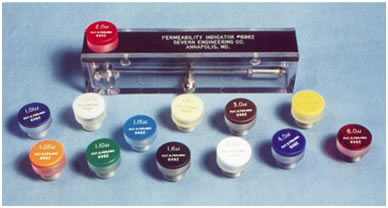Accurate Measurement of
Stainless Steels
Ferrite testing is a fast, inexpensive, and accurate way to measure delta ferrite content in austenitic and duplex stainless steels. Proper ferrite content provides a balance between ductility, toughness, corrosion resistance and crack prevention.
Heat, pressure and caustic environments require materials and welds with very high metallurgical integrity. A correct ferrite measurement can help to avoid both solidification cracking and corrosion in stainless steel welds, pipes, plates, pressure vessels and petrochemical components.
When ferrite content is too high, stainless steel can lose ductility, toughness, and corrosion resistance – especially at high temperatures. If ferrite content is too low, stainless steel welds become susceptible to hot cracking or solidification cracks.
In duplex stainless steel welds, a deficit of ferrite content can also reduce weld strength and contribute to the development of stress corrosion cracks.

Ferrite Test Process
Using the magnetic induction method, with highly accurate digital readings and in situ instrument calibration checks, trained BTS technicians can report readings individually or in ranges to meet customer specifications.
Baker Testing can measure and report ferrite content of welds and components during fabrication and for in-service applications with two different test methods, depending on code or customer requirements.
Alternately, high sensitivity low Mu permeability standards measure ferrite content between a series of calibrated standards. Test measurements can be reported by ferrite number (FN) or by ferrite percentage in conformance with welding procedures, customer drawings, and specifications by direct reading or conversion.
Experience, Expertise, Code Conformance

- Over 15 years experience in ferrite testing and measurement for a variety of industries and applications
- Trained and qualified technicians use both Fischer digital feritscopes and Severn permeability indicators in conformance with ASTM A342, AWS 4.2, DIN EN ISO 17655, as well as various other military, civilian, and customer specific standards and requirements
- Both field and in-house testing services are available. If you can’t bring components to us, we will come to you.
Photographs courtesy of Olympus
